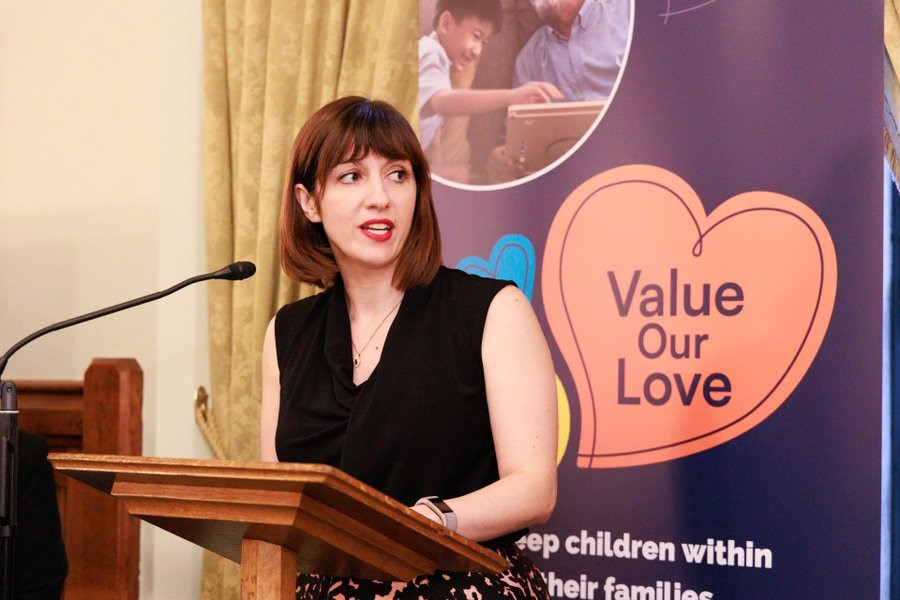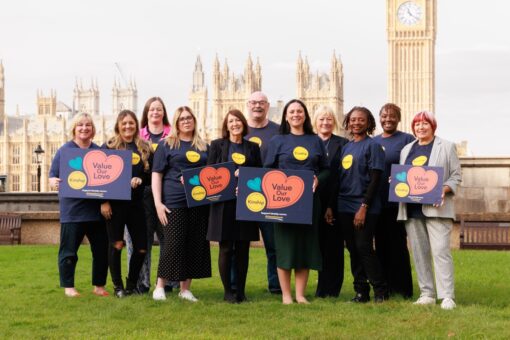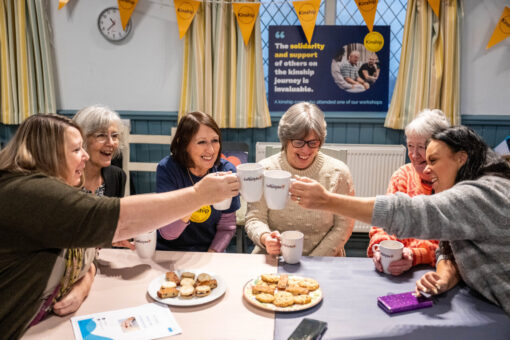
Learn how Kinship shapes policy and advocates for change. Through collaboration with families and policymakers, we work to ensure kinship carers’ voices are heard and supported across England and Wales.
The Children's Wellbeing and Schools Bill seeks to define kinship care in primary legislation.
Slow progress
Click on the link below to take you to the section you'd like to read:
Clause 5 of the Children’s Wellbeing and Schools Bill progressing through Parliament includes a definition of kinship care to support the delivery of the new kinship local offer requirement.
This differs slightly from the existing definition included within statutory guidance on kinship care. The definition included here notes situations where children are “raised in the care of a friend or family member who is not their parent… the arrangement may be temporary or longer term”, whereas the Children’s Wellbeing and Schools Bill definition for the purpose of the kinship local offer considers it to be where a child “lives with [their carer(s)] for more time than the child lives with a parent” and their carer(s) “provides all of the care and support provided for the child, or more of that care and support than is provided for the child by a parent”.
The Law Commission’s kinship care project is considering “producing a legal definition of kinship care for the purpose of the issues considered in the project”.
In the National Kinship Care Strategy, the then government outlined a new ‘government definition’ of kinship care, subsequently embedded into the National Children’s Social Care Framework and Working Together to Safeguard Children statutory guidance. This was developed further and published in updated statutory guidance on kinship care in October 2024.
Prior to this, the government consulted on a working definition published in Stable Homes, Built on Love in 2023, responding to the Independent Review of Children’s Social Care’s recommendation to establish a legal definition of kinship care.
The National Kinship Care Strategy also noted that the Department for Education and other governmental departments would replace use of the term ‘family and friends care’ with ‘kinship care’.
The definition included in updated stautory guidance helpfully pulls together different types of kinship care arrangements already understood but not clearly defined as ‘kinship care’ in other legislation and guidance, and builds on this to also include those missing or excluded from existing categories. For example, it includes greater consideration of relatives such as great aunts, great uncles and cousins (who wouldn’t be included within the existing definition of ‘close family member’ within the Children Act 1989) in informal arrangements beyond private fostering. This is important and welcome – up to 10% of kinship carers who completed our 2025 annual survey would not be understood as ‘close family members’ for example.
A comprehensive definition of kinship care in legislation is welcome to improve visibility and clarity, but this will not in isolation improve the negative experiences which many kinship carers face in engaging with services and professional without additional awareness-raising and training. In itself, a definition will not deliver better support for kinship families, nor is it an essential condition for this. This is why the #ValueOurLove campaign and Kinship’s policy and campaigns activity continues to prioritise securing commitments to tangible financial, practical and emotional support.
Most government action to improve support continues to target specific groups of kinship carers, such as special guardians or those raising children who were previously looked after, undermining the definition’s value. We have argued firmly that any new definition should be accompanied by a clear pathway for all kinship carers to access high-quality support from the government, local authorities and other partners. Instead, commitments made in the National Kinship Care Strategy and since – such as the Kinship Allowance Pilot and the extension of virtual school head (VSH) support – continue to restrict support to particular groups of kinship carers. Instead of simplifying and working to introduce new support for all kinship carers, this instead introduces further hierarchies in which groups of kinship carers have eligibility for particular entitlements.
Moving towards use ‘kinship care’ rather than ‘family and friends care’ is very welcome; consistent use of terminology across government and beyond will improve understanding and enable more kinship carers to identify as kinship carers.
We hope the adoption of an inclusive definition will support government, public services and others who impact the lives of children and families to better recognise and understand all kinship families. In the future, the government should seek to more actively use the definition in determining who is eligible for support, even if the approach or mechanism for delivery may vary between groups. All kinship carers – regardless of the legal order or lack thereof securing the family arrangement – typically have similar needs, experiences and strengths, and this should be reflected in the support offered to them.
The Department for Education should also now detail how it will use the definition to raise awareness and ensure the needs and strengths of kinship families are considered in wider policy-making and service provision across other governmental departments and in other relevant programmes of work such as family hubs and the Start for Life programme. This should include an ambitious programme to boost awareness of kinship care within public services and groups of professionals who are likely to engage with kinship families, including primary health practitioners. Without this active effort, a new definition in guidance alone will not help to eradicate the stigma, discrimination and lack of understanding which too many kinship carers face.

Kinship carers are family or friends who step up, often during an unexpected crisis, to care for a child when their parents aren’t able to.
View What is kinship care?
Stay informed with Kinship's latest briefings and responses. See how we represent kinship carers in consultations and provide insights to shape policy decisions.
View Briefings, responses and submissions
Kinship Care Week is a national week of awareness, recognition, and celebration of kinship families across England and Wales.
View Kinship Care Week